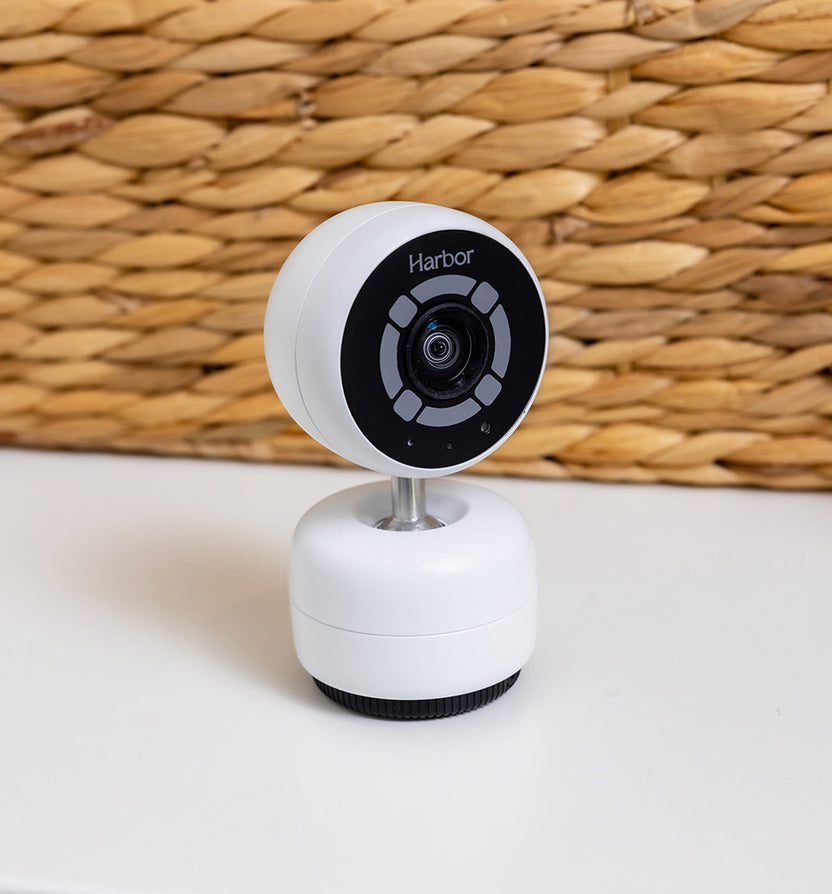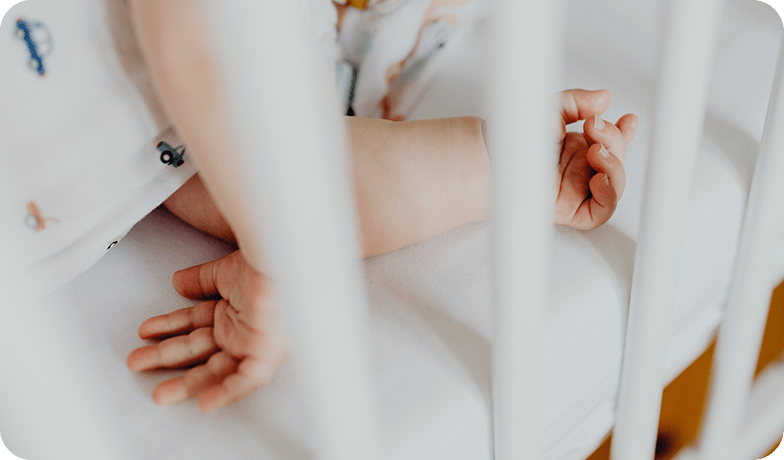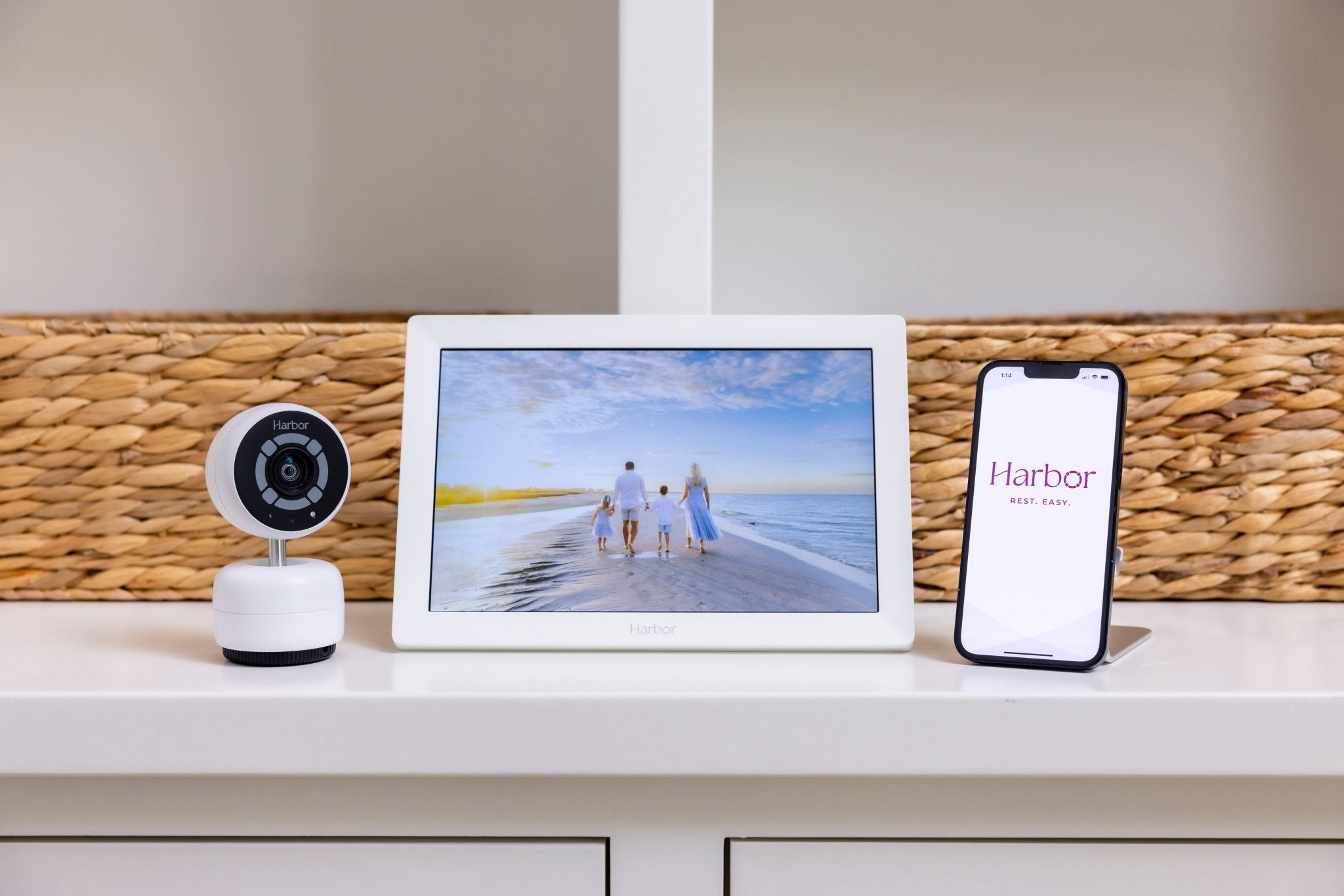
By: Angela McPhillips, DNP, RN
During my years as a pediatric ER nurse, winters meant a jam-packed waiting room full of sniffly noses, coughs, and plenty of scared and overwhelmed parents.
As a new parent, maybe you’ve already experienced the worry and overwhelm that comes when your baby gets sick. It’s tough to see your little one feeling unwell, but here’s some reassuring news: every illness helps your child’s immune system grow stronger. Each sniffle, fever, or cough is like a workout for their developing immunity—a normal part of the parenting journey!
—par for the course on the parenting roller coaster!
But understanding common childhood viruses, such as RSV, and how to protect your little one can boost your confidence and empower you to properly care for your baby—whether symptoms are mild or severe.
Here’s everything you need to know about RSV: what it is, how to recognize it, how to prevent it, and what to do if your baby gets it.
What Exactly Is RSV?
Respiratory syncytial virus, or RSV, is a common—but highly contagious virus—that nearly all children experience by age two. While most cases are mild, RSV can sometimes lead to severe breathing problems, especially in newborns, premature babies, or infants with health conditions.
Who Is Most at Risk?
While RSV can infect anyone, it’s particularly concerning for:
-
Infants under 6 months old, whose immune systems are still developing.
-
Premature babies with underdeveloped lungs or weaker immunity.
-
Babies with chronic lung disease, heart defects, or other medical conditions.
These groups are more likely to develop complications, like bronchiolitis (inflammation of the airways) or pneumonia (a serious lung infection).
How Does RSV Spread?
RSV spreads easily through:
-
Coughing and sneezing: Tiny droplets can be inhaled by others nearby.
-
Contaminated surfaces: The virus can live on toys, doorknobs, or counters for hours.
-
Direct contact: Close contact, like kissing a baby’s face, can transfer the virus.
Because babies often touch their faces and mouths, they’re especially vulnerable to catching RSV, particularly during RSV season, which peaks in the fall and winter.
Recognizing RSV Symptoms
RSV symptoms range from mild to severe. Knowing what to look for can help you respond appropriately.
Mild Symptoms:
-
Runny nose
-
Mild cough
-
Low-grade fever
-
Decreased appetite
These symptoms are often manageable at home with fluids, rest, and comfort. Always contact your baby’s healthcare provider if you’re concerned about their health.
Severe Symptoms (Seek Medical Attention):
-
Wheezing (a high-pitched whistling sound when breathing)
-
Rapid or labored breathing
-
Refusing fluids or difficulty feeding
When to Call the Pediatrician
Contact your pediatrician if see the following symptoms in your baby:
-
Breathing faster than normal
-
A persistent fever (above 100.4°F) that doesn’t improve with a fever reducing medication
-
Signs of dehydration, such as fewer wet diapers or a dry mouth
-
Fussier or sleepier than usual
-
Difficult to arouse or listless—lacking their usual energy and playfulness
Prompt medical care can help prevent complications like pneumonia or bronchiolitis.
When RSV is an Emergency
Trouble breathing is a medical emergency. Call 911 or seek immediate medical attention if you see the following (or anytime you are concerned for your child’s health):
-
Baby is breathing hard and fast: nostrils are flaring or the head is bobbing up and down with each breath.
-
Baby is using their muscles to breathe (called retractions): skin is tugging in between ribs and lower neck.
-
Persistent vomiting and signs of dehydration: 1 wet diaper or less over 8 hours, dry mouth and lips, sunken eyes.
-
Color changes: pale, gray, or bluish tint around their lips or fingernails.
How RSV Is Diagnosed
Your pediatrician may use the following methods to diagnose RSV:
-
Physical exam: Listening to the lungs and checking for labored breathing or wheezing.
-
Nasal swab: A quick test to confirm RSV.
-
Chest X-ray: Occasionally used for severe cases to check for complications like pneumonia.
Treating RSV
There’s no antiviral treatment for RSV. Most babies recover on their own with supportive care. Again, contact your pediatrician to get specific recommendations for your baby. Supportive care for most common viral respiratory illnesses is the same. Here’s what you can do at home:
-
Hydration: Offer frequent feedings of breast milk, formula, or electrolyte solution (if your baby is old enough). Try an oral medicine syringe to offer small amounts of fluid if baby is refusing the breast or bottle.
-
Rest: Let your baby sleep as much as they need.
-
Saline drops and suction: Use saline drops followed by gentle suction to clear nasal passages. Clear nasal passages before offering fluids.
-
Humidifier: A cool-mist humidifier can ease congestion.
For high-risk infants, a medication called palivizumab (Synagis) may be recommended to help prevent severe RSV. Talk to your pediatrician to see if your baby needs this medication.
Babies with severe RSV symptoms may need extra support. If your baby has a hard time feeding or trouble breathing despite supportive care, your pediatrician may recommend inpatient hospitalization for IV fluids and supplemental oxygen. Most babies improve and go home after a few days.
How to Protect Your Baby from RSV
While it’s impossible to completely eliminate the risk of RSV, these steps can help reduce it:
-
Practice Good Hygiene:
-
Wash your hands frequently with soap and water for at least 20 seconds.
-
Disinfect surfaces like toys, doorknobs, and counters.
-
Avoid close contact with anyone showing cold or flu symptoms.
-
If someone feels unwell, they should wear a mask or keep their distance.
-
Limit Crowded Places:
-
During RSV season, minimize exposure to crowded public spaces, daycare centers, or family gatherings where the virus can easily spread.
-
Ventilate and Clean Your Home:
-
Keep your home well-ventilated and clean. RSV can survive on surfaces for hours, so frequent cleaning is essential.
RSV Immunization
To reduce the severity of RSV and the risk of hospitalization, your OB or pediatrician may recommend an RSV vaccine for you (if you're pregnant) or your baby.
RSV Vaccine During Pregnancy
If your baby is due during RSV season, you might be eligible for the maternal RSV vaccine (Abrysvo) during pregnancy. This single-dose vaccine is given between 32 and 36 weeks of pregnancy, from September through January. It reduces the risk of RSV-related hospitalizations by 57% during your baby’s first six months.
Here’s how it works: once you receive the vaccine, your body produces antibodies that pass to your baby before birth, providing vital protection during those early, vulnerable months. If you’ve already received this vaccine in a previous pregnancy, there’s no need for a repeat dose. For later pregnancies, your baby would be eligible for the infant immunization instead.
RSV Immunization for Babies
Babies and some toddlers can receive RSV protection through an injection called nirsevimab (Beyfortus). Doctors typically give this immunization at birth or during a checkup just before RSV season begins.Instead of teaching the immune system to build its defenses with RSV exposure, this shot delivers ready-made antibodies that start protecting your baby immediately, with effectiveness lasting throughout the season.
Clinical studies show a one-time dose of nirsevimab reduces the risk of RSV hospitalization by 80–90%.
Talk to your baby’s healthcare provider to decide which option is right for your family.
Stay Ahead of RSV Worries
RSV is common, and most babies recover with proper care. By recognizing symptoms early, practicing prevention, and knowing when to seek medical help, you’re setting your baby up for a safe recovery.
Be sure to have your pediatrician’s contact number—including their on-call/after hours procedure—readily available. Prepare a list of local urgent care facilities or emergency departments, including those that provide pediatric care (if available in your area). Late-night health worries are easier to manage if you’re prepared and can get in touch with a healthcare provider for immediate support.
Download Harbor's Emergency Contact Sheet here!
Parenting can feel overwhelming, but you’re not in this alone. With the right knowledge and preparation, you’ll navigate challenges like RSV with confidence.
You’ve got this.




